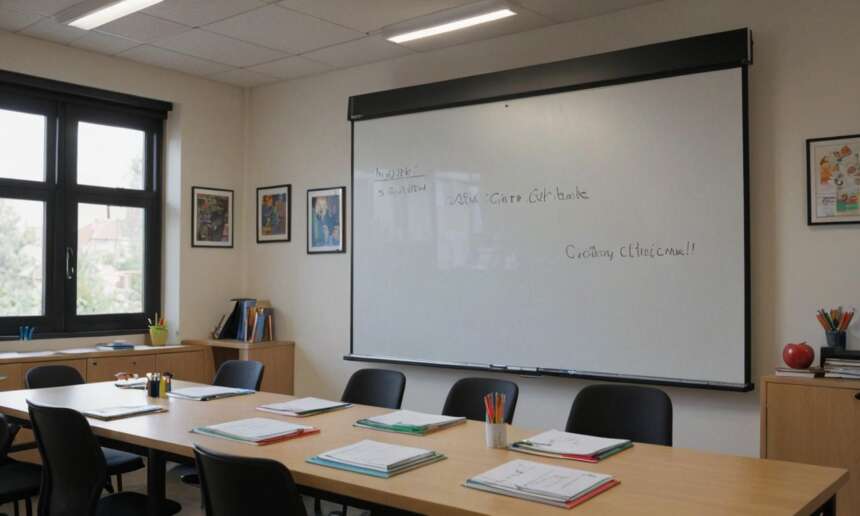Are you passionate about teaching English to speakers of other languages (ESOL) and looking to pursue a career in the United Kingdom? Becoming an ESOL teacher can be a fulfilling and rewarding profession, allowing you to make a positive impact on the lives of individuals from diverse backgrounds. In this guide, we will walk you through the steps to become an ESOL teacher in the UK.
Understanding ESOL Teaching
ESOL teaching involves instructing individuals whose first language is not English. These learners may include immigrants, refugees, or international students seeking to improve their English language skills for various purposes such as work, study, or integration into society.
Educational Requirements
While specific requirements may vary depending on the institution or employer, most ESOL teaching positions in the UK require a bachelor’s degree in a relevant field such as English language teaching, linguistics, education, or a related subject. Additionally, obtaining a recognized teaching qualification, such as a Certificate in Teaching English to Speakers of Other Languages (CELTA) or a Diploma in English Language Teaching to Adults (DELTA), is typically necessary.
Gain Teaching Experience
Building teaching experience is essential for becoming an effective ESOL teacher. Consider volunteering or working as a teaching assistant to gain practical experience working with English language learners. Additionally, completing a teaching practicum as part of your qualification can provide valuable hands-on experience in a real classroom setting.
Obtain Relevant Certifications
In addition to a bachelor’s degree and teaching qualification, obtaining additional certifications can enhance your credentials as an ESOL teacher. For example, you may pursue specialized certifications in teaching young learners, teaching business English, or teaching English for specific purposes (ESP), depending on your interests and career goals.
Continuing Professional Development
Continuous professional development is crucial for staying up-to-date with the latest teaching methodologies, resources, and best practices in ESOL education. Consider attending workshops, conferences, or pursuing further education to expand your knowledge and skills as an ESOL teacher.
Networking and Job Search
Networking with other professionals in the field and attending job fairs or industry events can help you connect with potential employers and explore job opportunities in ESOL teaching. Utilize online job boards, professional networking sites, and recruitment agencies specializing in education to search for vacancies and submit your applications.
Prepare for Interviews
Once you have identified job opportunities, prepare for interviews by researching the institution or organization, familiarizing yourself with common interview questions for ESOL teachers, and showcasing your enthusiasm for teaching English language learners. Be prepared to discuss your teaching philosophy, classroom management strategies, and approaches to supporting diverse learners.
Apply for Teaching Positions
After completing your qualifications, gaining relevant experience, and preparing for interviews, start applying for ESOL teaching positions in schools, language institutes, community centers, or online teaching platforms. Tailor your application materials, including your CV, cover letter, and teaching portfolio, to highlight your qualifications, experience, and suitability for the role.
Becoming an ESOL teacher in the UK requires dedication, education, and practical experience in teaching English language learners. By following these steps and continuously seeking opportunities for professional development, you can embark on a rewarding career path in ESOL education, making a positive impact on the lives of learners from diverse linguistic and cultural backgrounds.
Frequently Asked Questions
Here are some frequently asked questions about becoming an ESOL teacher in the UK:
- What are some alternative routes to becoming an ESOL teacher?
- Is there a demand for ESOL teachers in the UK?
- Can I teach ESOL without a teaching qualification?
- What are the typical salaries for ESOL teachers in the UK?
- Are there any government-funded programs or initiatives for ESOL teachers?
Alternative Routes to ESOL Teaching
While a bachelor’s degree and a teaching qualification are commonly required, some individuals may pursue alternative routes to becoming an ESOL teacher. This may include completing online TEFL (Teaching English as a Foreign Language) courses, participating in distance learning programs, or obtaining certifications from reputable organizations.
Demand for ESOL Teachers
There is a growing demand for ESOL teachers in the UK, particularly in areas with large immigrant or refugee populations. Additionally, as English continues to be a global language of communication, the need for English language education remains high, creating opportunities for qualified ESOL teachers.
Teaching ESOL without a Qualification
While having a recognized teaching qualification is typically preferred, some institutions or organizations may hire individuals without formal qualifications based on their experience, language proficiency, and ability to demonstrate teaching competence. However, obtaining a teaching qualification can enhance job prospects and provide professional credibility.
Salaries for ESOL Teachers
Salaries for ESOL teachers in the UK vary depending on factors such as location, experience, qualifications, and type of employer. Generally, salaries range from entry-level positions in community centers or language schools to higher-paying roles in international schools or corporate settings.
Government-Funded Programs
The UK government may offer funding or support for initiatives aimed at improving English language proficiency among immigrant communities or promoting integration through education. ESOL teachers may have opportunities to participate in government-funded programs, projects, or partnerships focused on language education and community development.




